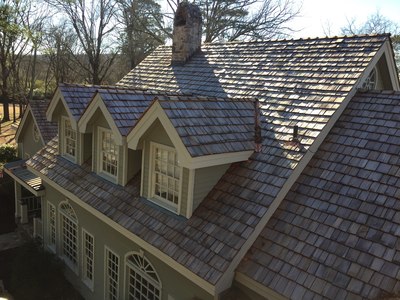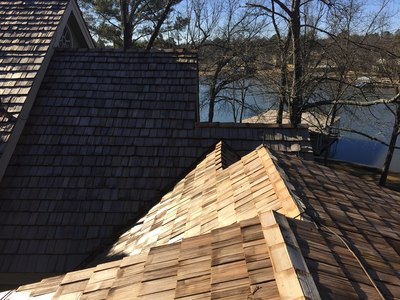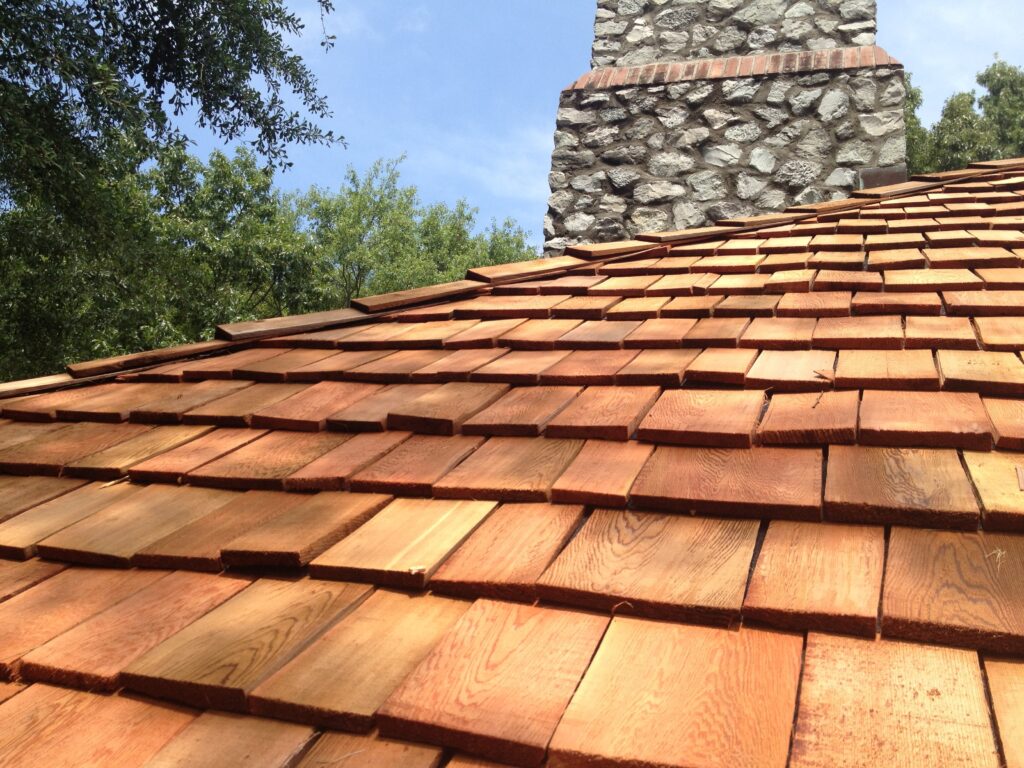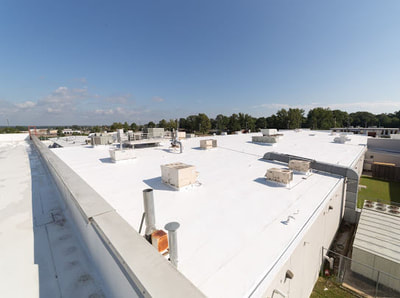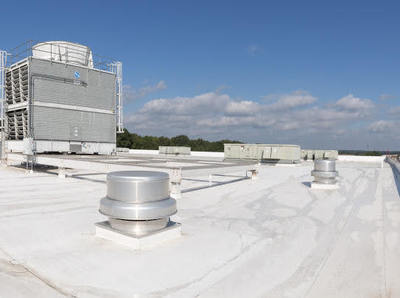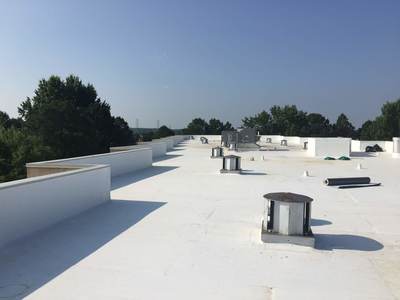Roofing Systems
Commercial Roofing
Thermoplastic Polyolefin Roofing (TPO)
TPO roofing, or thermoplastic commercial roofing, is a popular roofing material used on flat or low-sloped roofs. It is made of thermoplastic olefin, which is a synthetic rubber compound that is highly resistant to UV radiation, ozone, and extreme temperatures. TPO roofing has a number of benefits that make it a popular choice for commercial and industrial buildings. Firestone, GAF, and Johns Mansville are excellent manufactures:
-
Durability: TPO roofing is known for its durability and resistance to extreme weather conditions. It can withstand high winds and heavy rain, making it a suitable choice for areas prone to severe weather.
-
Energy efficiency: TPO roofing has high solar reflectivity, which helps to keep a building cool in the summer and reduce energy consumption. This can result in lower energy bills for the building owner.
-
Low maintenance: TPO roofing is easy to maintain and does not require frequent repairs or upkeep. It is also resistant to stains and dirt, making it easy to keep clean.
-
Environmentally friendly: TPO roofing is made from recycled materials and is itself fully recyclable. It also helps to reduce energy consumption, which can have a positive impact on the environment.
-
Cost-effective: TPO roofing is typically less expensive than other types of roofing materials, such as PVC or EPDM. It also has a longer lifespan, which can save building owners money in the long run.
Overall, TPO roofing is a durable, energy-efficient, and cost-effective choice for flat or low-sloped roofs. It is a popular choice for commercial and industrial buildings and can offer a range of benefits for building owners.
Poly Vinyl Chloride (PVC) Roofing
PVC roofing is a type of roofing material that is made from polyvinyl chloride, a synthetic plastic polymer. It is commonly used on flat or low-sloped roofs, and is known for its durability, versatility, and resistance to weather and UV radiation. Here are some benefits of PVC roofing:
Durability: PVC roofing is highly resistant to extreme weather conditions, including high winds and heavy rain. It can also withstand extreme temperatures, making it suitable for use in a variety of climates.
Versatility: PVC roofing can be used on a variety of roof types and slopes, and is suitable for use on both commercial and residential buildings. It is also available in a range of colors and styles, making it a versatile choice for any building.
Energy efficiency: PVC roofing has high solar reflectivity, which helps to keep a building cool in the summer and reduce energy consumption. This can result in lower energy bills for the building owner.
Low maintenance: PVC roofing is easy to maintain and does not require frequent repairs or upkeep. It is also resistant to stains and dirt, making it easy to keep clean.
Environmentally friendly: PVC roofing is made from recycled materials and is itself fully recyclable. It also helps to reduce energy consumption, which can have a positive impact on the environment.
Overall, PVC roofing is a durable, versatile, and energy-efficient choice for flat or low-sloped roofs. It is a popular choice for both commercial and residential buildings and can offer a range of benefits for building owners.
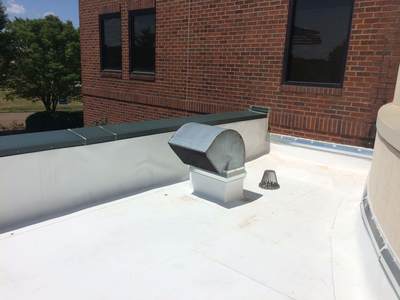
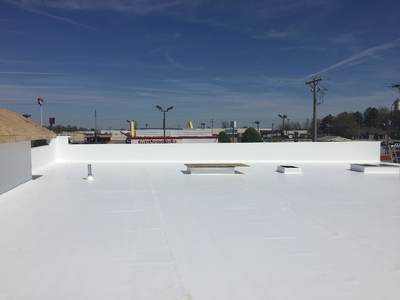
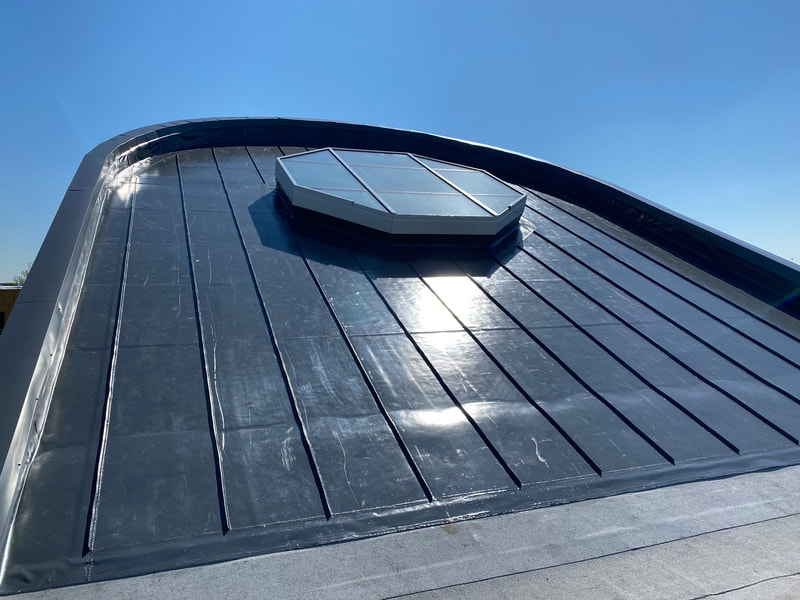
Modified Roll Roofing
Modified rubber roofing, also known as modified bitumen roofing, is a type of roofing material that is made from asphalt that has been modified with rubber or plastic polymers. It is commonly used on flat or low-sloped roofs and is known for its durability and versatility. Here are some benefits of modified rubber roofing:
Durability: Modified rubber roofing is highly resistant to extreme weather conditions, including high winds and heavy rain. It can also withstand extreme temperatures, making it suitable for use in a variety of climates.
Versatility: Modified rubber roofing can be used on a variety of roof types and slopes, and is suitable for use on both commercial and residential buildings. It is also available in a range of colors and styles, making it a versatile choice for any building.
Energy efficiency: Modified rubber roofing has high solar reflectivity, which helps to keep a building cool in the summer and reduce energy consumption. This can result in lower energy bills for the building owner.
Low maintenance: Modified rubber roofing is easy to maintain and does not require frequent repairs or upkeep. It is also resistant to stains and dirt, making it easy to keep clean.
Environmentally friendly: Modified rubber roofing is made from recycled materials and is itself fully recyclable. It also helps to reduce energy consumption, which can have a positive impact on the environment.
Overall, modified rubber roofing is a durable, versatile, and energy-efficient choice for flat or low-sloped roofs. It is a popular choice for both commercial and residential buildings and can offer a range of benefits for building owners.
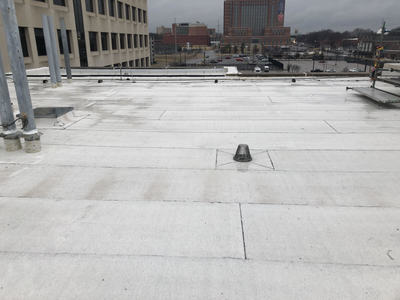
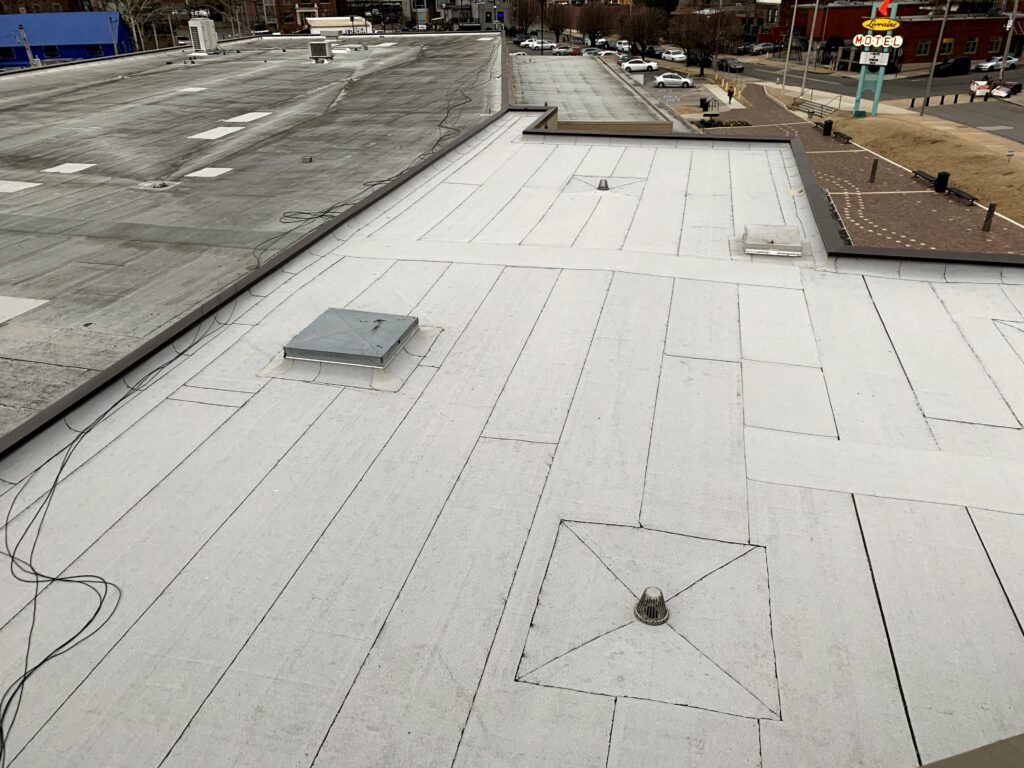
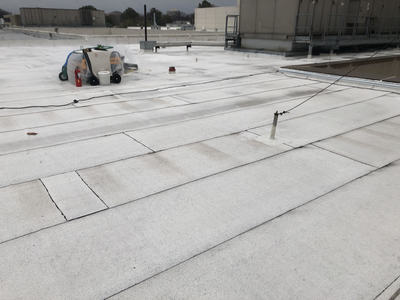
Roof Coatings
Roof coatings are thin layers of material that are applied to the surface of a roof to protect it from weathering, UV radiation, and other external factors. There are several types of roof coatings available, including:
Acrylic coatings: Acrylic coatings are made from a mixture of acrylic resin and water. They are highly resistant to UV radiation and weathering, and can be used on a variety of roof types.
Asphalt coatings: Asphalt coatings are made from asphalt, which is a durable and weather-resistant material. They are typically used on flat or low-sloped roofs, and are resistant to water and UV radiation.
Elastomeric coatings: Elastomeric coatings are made from elastic polymers that are highly flexible and resistant to weathering. They are suitable for use on a variety of roof types and slopes, and are able to expand and contract with the movement of the roof.
Silicone coatings: Silicone coatings are made from silicone, which is a highly elastic and weather-resistant material. They are suitable for use on a variety of roof types and slopes, and are resistant to water and UV radiation.
There are several benefits to using roof coatings:
Protection: Roof coatings provide a protective layer that helps to prevent weathering and UV radiation from damaging the roof.
Energy efficiency: Some roof coatings have high solar reflectivity, which helps to keep a building cool in the summer and reduce energy consumption.
Increased lifespan: Roof coatings can extend the lifespan of a roof by protecting it from weathering and other external factors.
Low maintenance: Roof coatings do not require frequent repairs or upkeep, and are easy to maintain.
Cost-effective: Roof coatings are a cost-effective alternative to replacing a roof, and can save building owners money in the long run.
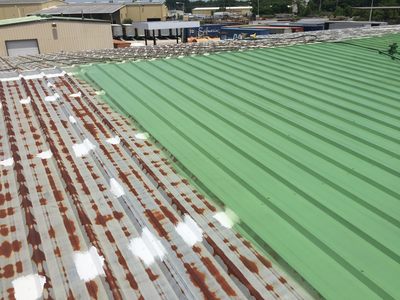
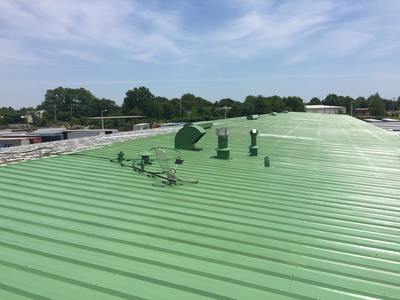
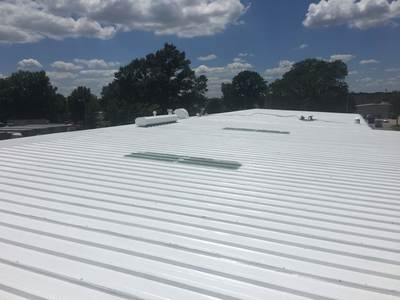
EPDM Commercial Roofing
EPDM roofing, or ethylene propylene diene monomer roofing, is a type of roofing material that is made from a synthetic rubber compound called EPDM. It is commonly used on flat or low-sloped roofs and is known for its durability and versatility. Here are some benefits of EPDM roofing:
Durability: EPDM roofing is highly resistant to extreme weather conditions, including high winds and heavy rain. It can also withstand extreme temperatures, making it suitable for use in a variety of climates.
Versatility: EPDM roofing can be used on a variety of roof types and slopes, and is suitable for use on both commercial and residential buildings. It is also available in a range of colors and styles, making it a versatile choice for any building.
Energy efficiency: EPDM roofing has high solar reflectivity, which helps to keep a building cool in the summer and reduce energy consumption. This can result in lower energy bills for the building owner.
Low maintenance: EPDM roofing is easy to maintain and does not require frequent repairs or upkeep. It is also resistant to stains and dirt, making it easy to keep clean.
Environmentally friendly: EPDM roofing is made from recycled materials and is itself fully recyclable. It also helps to reduce energy consumption, which can have a positive impact on the environment.
Overall, EPDM roofing is a durable, versatile, and energy-efficient choice for flat or low-sloped roofs. It is a popular choice for both commercial and residential buildings and can offer a range of benefits for building owners.
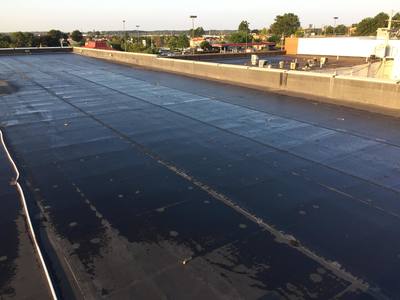
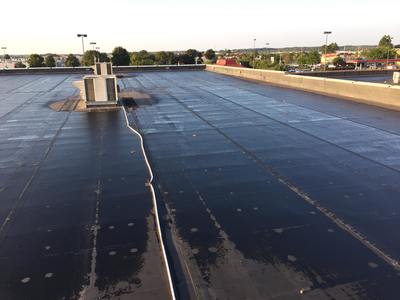
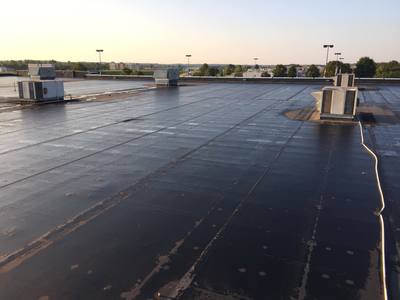
Metal Roofing
Metal roofing is a type of roofing material that is made from metal, such as steel, aluminum, or copper. It is known for its durability, longevity, and resistance to weathering. There are several types of metal roofing available, including:
Steel roofing: Steel roofing is made from steel and is known for its strength and durability. It is resistant to weathering, including high winds and heavy rain, and can last for up to 50 years with proper maintenance.
Aluminum roofing: Aluminum roofing is made from aluminum and is known for its lightweight, corrosion-resistant properties. It is suitable for use on a variety of roof types and slopes, and can last for up to 50 years with proper maintenance.
Copper roofing: Copper roofing is made from copper and is known for its durability and longevity. It is resistant to weathering and can last for up to 100 years with proper maintenance. Copper roofing is also resistant to bacteria and fungi, making it a hygienic choice for roofing.
Zinc roofing: Zinc roofing is made from zinc and is known for its durability and resistance to weathering. It is suitable for use on a variety of roof types and slopes, and can last for up to 50 years with proper maintenance.
Stone-coated steel roofing: Stone-coated steel roofing is made from steel and coated with a layer of stone chips. It is known for its durability, resistance to weathering, and aesthetic appeal.
Overall, metal roofing is a durable, long-lasting, and weather-resistant choice for roofing. It is suitable for use on a variety of roof types and slopes on both commercial or residential roofing , and is available in a range of colors and styles.
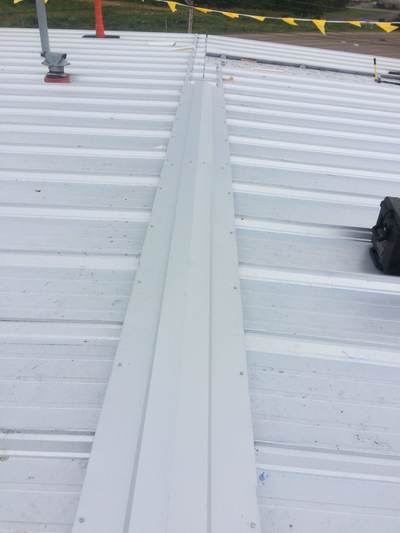
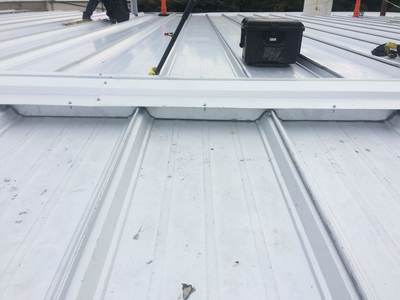
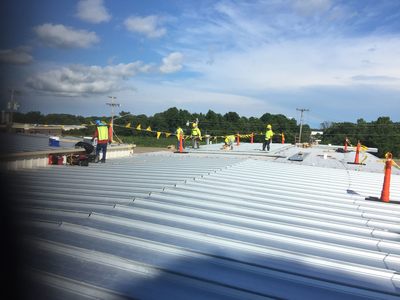
Slate Roofing Tiles
Natural slate roofing is a type of roofing material that is made from natural slate, which is a type of metamorphic rock. It is known for its durability, longevity, and aesthetic appeal. Some benefits of natural slate roofing include:
Durability: Natural slate roofing is highly durable and can last for up to 100 years with proper maintenance.
Longevity: Natural slate roofing is known for its longevity and can last for several decades with proper maintenance.
Aesthetic appeal: Natural slate roofing has a natural, attractive appearance that can enhance the look of a building. It is available in a range of colors and styles, allowing for a range of design options.
Environmentally friendly: Natural slate roofing is a natural, sustainable material that can be recycled and reused.
Composite slate roofing is a type of roofing material that is made from a composite material, such as plastic or rubber, that is designed to mimic the appearance of natural slate. Some benefits of composite slate roofing include:
Lightweight: Composite slate roofing is lightweight, making it easier to install and less likely to cause structural damage to a building.
Cost-effective: Composite slate roofing is typically less expensive than natural slate roofing, making it a more cost-effective option for building owners.
Low maintenance: Composite slate roofing is easy to maintain and does not require frequent repairs or upkeep.
Durability: Composite slate roofing is highly durable and can last for several decades with proper maintenance.
Overall, both natural slate roofing and composite slate roofing offer a range of benefits for building owners. Natural slate roofing is a durable, long-lasting, and attractive option, while composite slate roofing is a lightweight, cost-effective, and low-maintenance option.
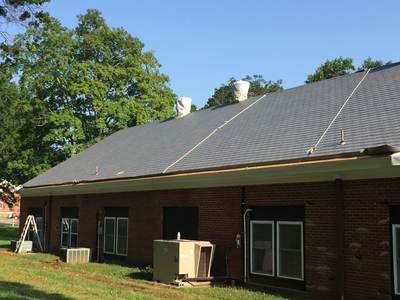
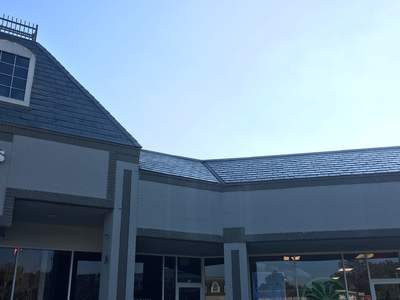
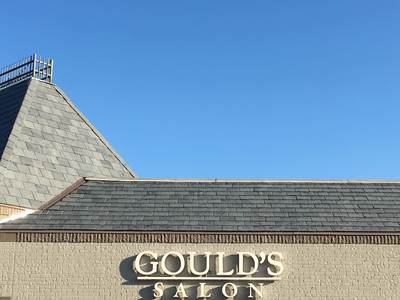
Wood Shake Shingles
Wood shake roofing is a type of roofing material that is made from wood shingles or shakes. It is commonly made from cedar, which is a type of wood that is known for its durability and resistance to rot and insect infestation. Here are some benefits of wood shake roofing:
Aesthetic appeal: Wood shake roofing has a natural, attractive appearance that can enhance the look of a building. It is available in a range of colors and styles, allowing for a range of design options.
Durability: Wood shake roofing is highly durable and can last for several decades with proper maintenance. Cedar is particularly resistant to rot and insect infestation, making it a durable choice for roofing.
Energy efficiency: Wood shake roofing has good insulation properties, which can help to keep a building warm in the winter and cool in the summer. This can result in lower energy bills for the building owner.
Environmentally friendly: Wood shake roofing is a natural, sustainable material that can be recycled and reused.
There are two main types of wood shake roofing: hand-split shakes and machine-sawn shakes. Hand-split shakes are made by splitting cedar logs by hand, which results in a rough, irregular appearance. Machine-sawn shakes are made by sawing cedar logs into thin strips, which results in a smoother, more uniform appearance.
Overall, wood shake roofing is a durable, attractive, and energy-efficient choice for roofing. It is suitable for use on a variety of roof types and slopes, and is available in a range of colors and styles.
